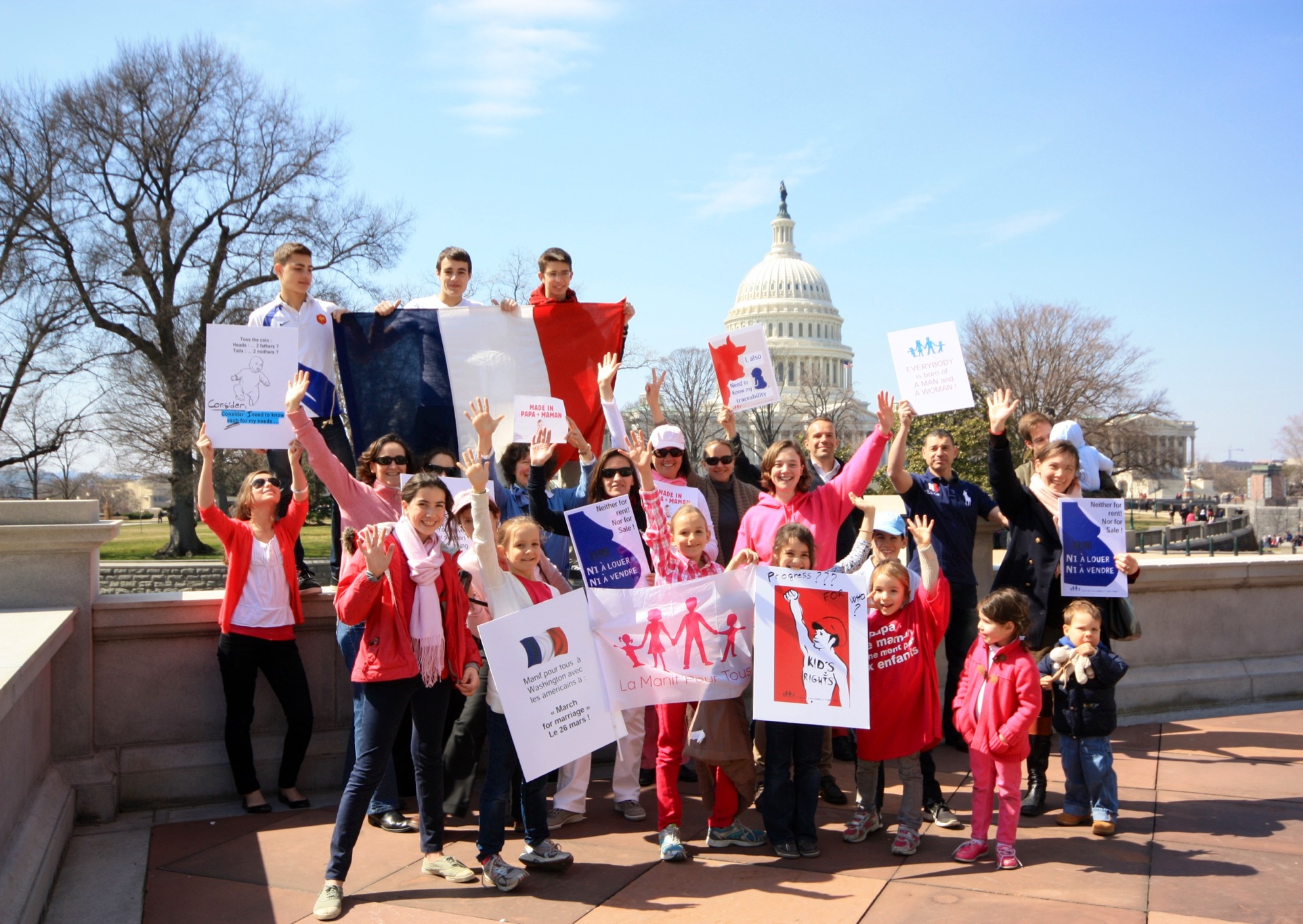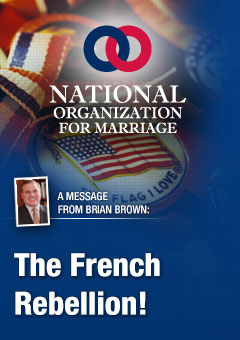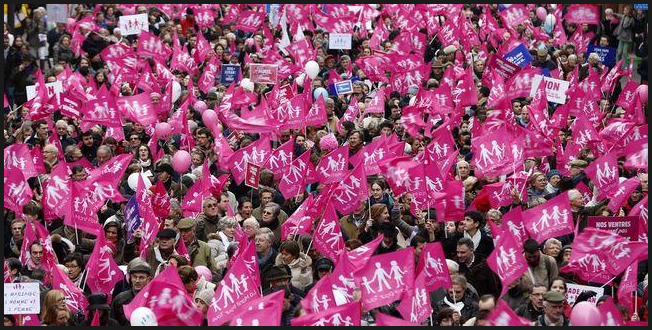Robert Oscer Lopez writes in the Public Discourse:
"...The French resistance to same-sex marriage has demonstrated that an ostensibly progressive nation that had little issue with homosexuality as a moral question can change its mind, not based on ignorance of reality, but based on knowing more about what same-sex marriage really means.
... The drop in support for same-sex marriage came with education and broader public debate. As the French knew more gay people individually and learned more about the ramifications of their legalized marriage on the community at large—especially children and poor communities overseas targeted for adoption and surrogacy—they liked the idea of same-sex marriage less and less.
...France proves that no opinion trend on any graph can be taken for granted as perpetual. In the United States we knew this already; we simply weren’t aware that we knew it. We know from the abortion debate that what seems like a steady march of acceptance can actually grind to a halt or reverse.
The Gallup polls on abortion show how unpredictable the trends in opinion can be, for the number of “pro-choice” Americans peaked in 1996 at 56 percent, then declined to 45 percent today, while pro-life opinion gained significant ground, albeit in fits and starts (only 33 percent of Americans were pro-life in 1996, compared to 48 percent today).
If we take a step back and examine how the international LGBT lobby has fought for same-sex marriage, we see that the lobby’s leaders must be equally aware that nothing is inevitable about acceptance of same-sex marriage, regardless of what they say publicly. Rather than patience, haste has characterized their tactics.

















 President Francois Hollande is planning to legalize same-sex marriage, but the country's Catholic bishops and other religious leaders are fighting the initiative.
President Francois Hollande is planning to legalize same-sex marriage, but the country's Catholic bishops and other religious leaders are fighting the initiative.













